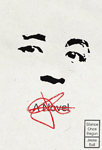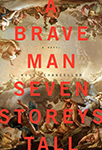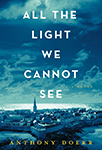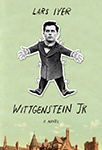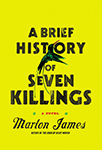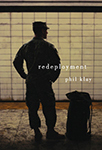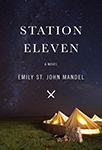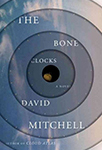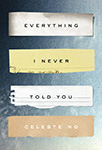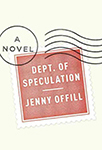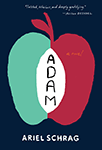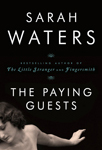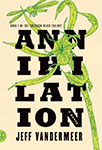by Jesse Ball
30% OFF at Powell’s »Manuel Gonzales: I came to these two novels—The Bone Clocks by David Mitchell and A Brief History of Seven Killings by Marlon James—with outsized expectations.
Ever since I picked up Mitchell’s third novel Cloud Atlas 10 years ago, ignorant of what David Mitchell or Cloud Atlas held in store for me, and later astounded by the intricate architecture, the stunning language, the scope and ambition of the work, I’ve expected greater and greater things from Mitchell’s work. And while I’ve never read anything by Marlon James before, I have heard him read from A Brief History at least three times now, twice at different conferences and once on the radio, and the work he’s read has been at once shocking and unsettling and funny and heartbreaking. Both novels are critical darlings, and they each clock in at well over 600 pages. Any story that requires that many pages to tell better be a damn good one.
Juggling work and kids and travel and my own writing, I read these pretty much how I read everything these days—catch-as-catch-can. At night before bed, in the kitchen while standing at the stove getting breakfast or dinner ready, in the pickup line after school, at stop lights, in between classes, half-watching my daughter swim laps, on and on. And while I read these books in the same way, the reading experience couldn’t have been more different.
The Bone Clocks was a fast read. Once you peel away the structural games, the über-novel conceits, the reincarnations, the shift in genre from one novel to the next, the metaphysical and mystical properties of his narratives—once you get to the heart of it—David Mitchell is a fantastic storyteller. His novels move quickly and a reader cannot help but become absorbed in his characters: their lives, their jokes, their small ambitions, their failures. The same can be said about The Bone Clocks, a novel structured as six novellas that are each linked through their connection to a woman named Holly Sykes and a battle of good versus evil waged between the horologists (the white hats) and the Anchorites of the Chapel of the Dusk of the Blind Cathar (the black hats). Each novella opens up a new world and new characters for the reader to explore—though not in the way of Cloud Atlas, as this novel covers a woman’s lifespan and not thousands of years—and characters from previous novels play new roles. Hugo Lamb from Black Swan Green and Dr. Marinus from The Thousand Autumns of Jacob de Zoet both get their own novellas. Further, the explanation of horology reaches back to explain the conceit in Cloud Atlas of the recurring birthmark and the memories of times past.
Couple Mitchell’s bright, sparkly language with his endearing and infuriating and heartbreaking characters, and couple this with his quick-moving plot lines, and a 650-page novel flies by much faster than anyone would expect it to.
A Brief History of Seven Killings, on the other hand, does not fly by. Perhaps intentionally opposes flying by. Probably murders flying by and its children and burns down its house in the middle of the night.
Styled in part after Faulkner’s As I Lay Dying and Duras’s The North China Lover, A Brief History concerns itself—ostensibly—with the attempted assassination of Bob Marley in late 1976 and the burgeoning, Jamaican gang-fueled crack epidemic of 1980s New York City. It is a novel of disparate voices written in slang and dialect, full of names that do not crop up again or that crop up again long after you’ve forgotten them, often written in stream-of-consciousness panic (“…bullet pop me finger off and mark me like Jesus Christ in me left palm no pain just quick burn me body have two dozen little fires but air rushing through me hear me body whistle Trevor and Lloyd doing the bullet dance…”).
It is a novel that manages little sustained action and much interior gazing and exposition in its first third, and unexplained and unanchored references to the politics and history of late-’60s, early-’70s Jamaica throughout. It is a difficult novel, to say the least, voiced almost entirely by men fueled by brutality and misogyny and anger and fear and intelligence and desire and ignorance. It contains more bloodshed in its first half than the entire collected works of Tarantino, none of it cartoonish or laughable. The scenes in James’s novel dare you to stop reading not just because the Jamaica it portrays is such a disaster, but because, as with “The Part About the Crimes” in Bolaño’s 2666, the violence and disaster can become tedious.
By the end of A Brief History, though, I could not put it down. Or rather, I could. I did. On many occasions, I shied away, took lengthy, necessary breaks, only then to be compelled to open it back up, to read further. It is an ambitious novel, and ambitious novels are messy and unwieldy and risk losing their readers, and more than messy, this novel is oftentimes an ugly novel. But it is a great one.
And while The Bone Clocks is a good novel, by the end of it, I was a little let down.
Most of the sections of Mitchell’s novel are compelling, but the voices in them often bleed one into the other. The first person narratives do not do enough to create separation. Consider, “The Thames is riffled and muddy blue today.”
And, “The morning’s gone muggy and stretched, like it does in triple maths, and the sun’s giving me eye-ache.”
And “I weave through Christmassy Soho, blaring, steamy, and hazardous with icy slush.”
And “Windsurfers, seagulls, and sun, a salt‘n’vinegar breeze, a glossy sea, and an early walk along the pier.”
Reading these, you realize just how much fun Mitchell has with language and how infectious his descriptions can be. But these descriptions are out of the heads of three very different characters, and they feel like they’ve come from the same mind, which they have: David Mitchell’s.
I was let down by the conceit, too, or Mitchell’s clumsy handling of it—horology could have been cooler or not there at all. And ultimately I was let down because Mitchell has trained me to expect the unexpected from his work. The Bone Clocks, as enjoyable as it was to read, offered nothing but what I already expected from David Mitchell.
A Brief History of Seven Killings, on the other hand, gave me something I hadn’t seen before. Did it give me something I’d want to see again? I can’t say that it did. But when matched against The Bone Clocks, based on ambition and risk alone, A Brief History of Seven Killings wins the round.
John: The last paragraph of Judge Gonzales’s ruling struck me because it so closely mirrored my response to these books.
On the one hand, up until it stopped me in my tracks (see my commentary from the first day of the tournament), The Bone Clocks was my favorite read of the year, but my hard feelings are made harder by my preexisting esteem for the works of David Mitchell. It is like how I have long given up on the Chicago Cubs doing anything other than disappointing me, so when news of yet another disaster come down the wires, I shrug at best.
On the other hand, when even a single goal is scored against our Chicago Blackhawks, I enter a state of existential meltdown where I start to wonder what sort of trades we could make in time to salvage the season. The injury to Patrick Kane sent me into a multi-day tailspin of despair.
I have been spoiled by the excellence of the Blackhawks. I have witnessed transcendent play, and when it is merely excellent, or when we are left with only five superstars instead of six, the world seems to be ending.
David Mitchell wrote this thing we’ve never seen before called Cloud Atlas, and it won the first Tournament of Books in a rout over Philip Roth.
Kevin: I have been telling people that The Bone Clocks is four fifths of my favorite novel of the year. And I feel a little bad that we spent five fifths of our last commentary talking about everything we didn’t like about it. As Judge Gonzales says more succinctly than we did, the horology chapter “could have been cooler or not there at all.” That’s it exactly.
So much of this book is terrific. The chapter with the neither gentle nor subtle parody of Martin Amis has layers of literary goodness. You compared the con man section to Highsmith, which is praise I can’t top. Mitchell’s regular readers will get intermittent gratification through the faces and places from previous novels that come and go in the background. Holly Sykes is a character you just want to curl up with, and once a novelist has created one of those, 90 percent of his job is done.
Could a person read this novel and just skip the horology chapter, as if these were merely linked stories about Holly Sykes? Man, almost. Or maybe just stop 10 pages short of where you did. That recommendation likely wouldn’t sit well with Mitchell, however.
John: Thinking about this reminds me of a recent Jonathan Franzen interview that caused the usual Franzen-foot-in-mouth-related contretemps for some comments about YA lit and Jennifer Weiner, but it was the conclusion of the interview that struck me most strongly. The interviewer asks him about his decision to include Patty’s autobiography as part of Freedom. Franzen answered: “desperation.”
Referring to his MO as a novelist, he went on to say, “First you pick the low-hanging fruit and then the medium-hanging fruit. The work gets ever harder and more desperate.”
Franzen gets a lot of (possibly deserved) guff over his public arrogance, but I was moved by this admission.
I doubt that Mitchell feels desperation over his work, but it is a tough thing when the way your work is received is colored so thoroughly by what you’ve done before.
Kevin: I do think Mitchell was attempting something structurally interesting and new in The Bone Clocks. Was it desperation? I don’t know about that. I just think that innovative structure needed another once-over by an engineer.
As for Marlon James, here is Judge Gonzales’s condensed summary of A Brief History of Seven Killings: “Ambitious, messy, unwieldy, ugly, great.” It’s all of those things.
Let’s go back to that Franzen interview. He says the average reader doesn’t want moral complexity. That most readers want fiction that affirms their worldview and doesn’t challenge their perception of life as a story in which they are the hero (I’m paraphrasing a little). I think that’s partially true, although Franzen gets one foot caught in the Richard Price trap here, assuming that people seek out formulaic novels because they are formulaic. When authors and publishers adopt that mindset, it’s bad for readers. In general, I believe people prefer entertainment that makes them feel good as opposed to bad, but it’s more complicated than that. I think readers have proven that they can embrace moral complexity when they relate strongly to characters in the context of a compelling story.
A Brief History of Seven Killings will challenge that average reader, for sure. Once they power through it—and that might be asking a lot, as Judge Gonzales points out—the reward is enormous.
Speaking of rewards, it’s time to pull out the Zombie results, and when we do we see that The Bone Clocks did receive enough votes to potentially get back in the contest. If the Zombie Round were held today, The Bone Clocks and Station Eleven would be among The Walking Read. This means, sadly, that Jenny Offill’s Dept. of Speculation is out of the ToB for good.
Finally, call an emergency meeting of the mid-20th-century European historical fiction society because tomorrow Elliott Holt and Laura van den Berg are back in the booth as Anthony Doerr’s All the Light We Cannot See takes on Sarah Waters’s The Paying Guests.


